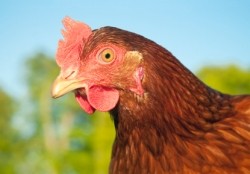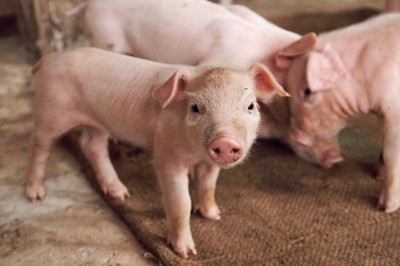Feed additives could help combat climate change

The findings indicate supplementation of feed with phytase and amino acids such as methionine, lysine, threonine and tryptophan improves the feed conversion ratio so less feed is needed for livestock growth performance.
The International Feed Industry Federation (IFIF) and the EU Association of Specialty Feed Ingredients and their Mixtures (FEFANA) are the two trade groups behind the Speciality Feed Ingredients Sustainability Project (SFIS), which they launched a year ago.
Assessing 'green' performance
The livestock sector is under particular pressure to assess, improve and communicate on its environmental performance, while coping with the increasing demand for animal products.
And there is a need, as such, for practical solutions to improve the environmental performance of the sector, said Michael Binder, chairman of the technical Board of the SFIS project.
“Quantitative information on key environmental impacts along animal related food chains is urgently required. Only doing so, consumers can be directly informed on priority action areas and feed and food systems can easily be analysed.
Since specialty feed ingredients (SFIs) play an important key role in advanced animal nutrition, Fefana and IFIF identified the need to take the leadership in conducting such a study,” said Binder.
The project was structured along three of the main regions of livestock production – Europe, North America and South America. “Asia with its challenging growth will be probably assessed in another study to keep the project manageable,” he added.
Pig and poultry feed
Binder said the SFIS study employed life cycle assessment (LCA) to examine the use of low protein diets (nitrogen) and phytase and amino acids in pigs and poultry:
“The main goal of the comparative LCA study was to analyse the cradle-to-grave (farm gate) environmental performance of pig and broiler production with and without speciality feed ingredients (SFIs) (amino acids and phytase) and to provide credible scientific evidence for informed decision making in areas related to the environmental impact of SFIs.”
For the purpose of the study, enzymes and amino acids were identified as those feed additives with the most significant impact as well as with the best database available for establishing a unique assessment method, he told FeedNavigator.com.
“In the multi-step approach as study concept, the use of SFIs was established as measure to improve feed conversion, animal welfare and reduce the effects of livestock husbandry on the environment.
Data collection, data inventory and data assessment were conducted on the basis of a multi-impact model (global warming potential, eutrophication and acidification potential, energy demand and direct land use change) using published and peer-reviewed literature, the experience of consortium members or calculations of the consulting company involved in the project,” said Binder.
Eutrophication and acidification potential
When asked whether the project has been able to demonstrate a real reduction in emissions in the food and feed chain, Binder said that, so far, the supplementation of feed with amino acids and phytases showed "the most beneficial effect for eutrophication and acidification potential."
But he said that, in terms of global warming reduction potential, both feed additives can only contribute indirectly.
"The approach in the SFIS study is a theoretical one, not followed by experimental emission studies, so the savings demonstrated in the report display the reduction potential when using the proposed technology in practice," added Binder.
Multiple farm systems studied
Since the production of animal protein has to face two challenges at one time – nourish the increasing number of people on earth and reduce the environmental impacts of livestock production – the main focus of the research was on the intensive farm system, he added.
“But due to the framework of the concept, the study also considered less intensive to advanced production systems by means of so called sensitivity analysis following the ISO 14044:2006 standard,” said Binder.
Project validation
The results of the study were validated by an independent scientific council made up of experts in the fields of LCA methodology, animal nutrition and feed from AsiaPacific, North America, Europe and South America, said the trade groups.
“The scientific council provided independent expert advice on the project during the whole course of the work. This ensured scientifically robust inputs in the analysis and prepared the ground for a future peer reviewed publication of the project output once it is completed,” explained Binder.
The council also guaranteed, he said, that the study properly reflected regional requirements regarding formulation of diets or nutritional concepts.
The final findings of the SFIS study will be published in Q2 2014, said the project coordinators.
The next step for the project consortium is to run the critical review process, which is mandatory under the ISO standard ISO 14044:2006, before starting publication and dialogue with stakeholders, he said.















